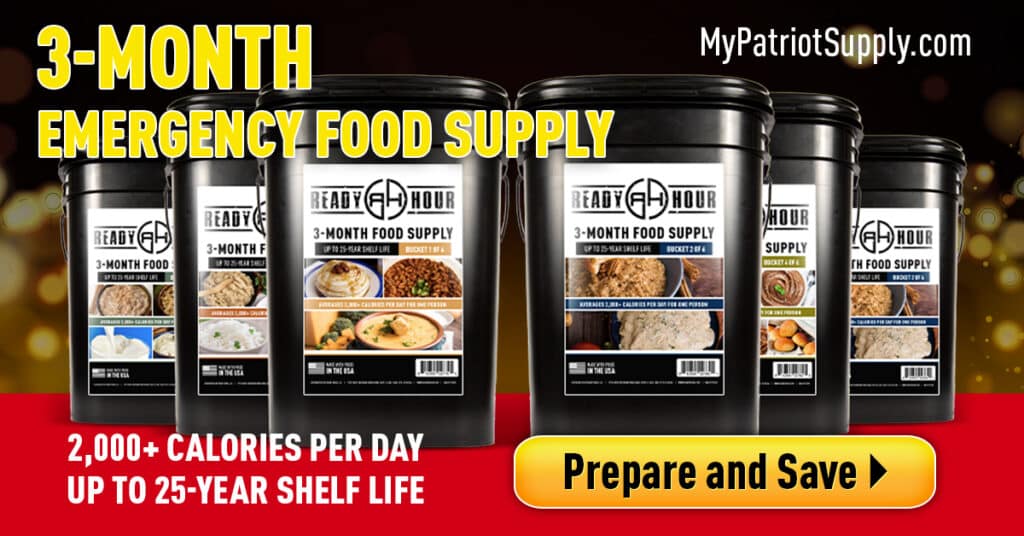In unpredictable times, having a well-stocked pantry with a 3-month emergency food supply can provide peace of mind and stability. This guide will help you understand the value of such a stockpile and how to assemble your own.
Why Build a 3-Month Emergency Food Supply?
A solid plan for an emergency food supply is not just about preparing for natural disasters or economic uncertainty; it's also about being ready for personal crises like job loss or illness. A well-rounded supply should be able to support you and your family for at least three months, giving you time to recover and find a suitable solution without worrying about where your next meal is coming from.
Key Factors in Building Your Food Kit
Before you start building your emergency food supply, consider these factors:
- Shelf life: Opt for items with a long shelf life, preferably those that last several years. Freeze dried food, canned goods, and dry staples are great choices.
- Nutrition: Make sure to include foods that offer a balance of protein, carbohydrates, fats, vitamins, and minerals. Don't forget about fruits and vegetables – canned, dried, or freeze-dried options can be nutritious and shelf-stable.
- Preferences: Stock up on familiar foods that your family enjoys eating. Having comfort foods during tough times can help maintain morale.
- Variety: Include a mix of breakfasts, lunches, dinners, snacks, and beverages to avoid menu fatigue.
- Special dietary needs: If anyone in your family has specific dietary requirements, be sure to include suitable options in your food supply.
3-Month Emergency Food Supply Essentials
Now that you know the factors to consider, it's time to build your food kit. Here are some suggested items:
Grains and Starches
- Rice
- Pasta
- Flour or ready-made bread mixes
- Cereal and oatmeal
- Crackers
- Quinoa and other whole grains
- Potato flakes or instant mashed potatoes
- Tortillas
Protein Sources
- Canned meats (e.g., chicken, tuna, ham)
- Dried or canned beans and lentils
- Freeze dried meat
- Nuts and seeds
- Peanut butter and other nut butters
- Protein powder or meal replacement shakes
Fruits and Vegetables
- Canned fruits and vegetables
- Freeze dried fruits and vegetables
- Dried fruit such as raisins, apricots, and mangoes
- Vegetable juice
- Fruit preserves or jams
Dairy and Dairy Alternatives
- Powdered milk
- Shelf-stable milk or dairy alternatives (e.g., almond, soy, rice milk)
- Canned evaporated milk
- Powdered cheese
Fats and Oils
- Cooking oil (e.g., olive, canola, coconut)
- Shortening or lard
- Ghee or clarified butter
- Mayonnaise
- Salad dressings
Condiments and Spices
- Salt, pepper, and other seasonings
- Herbs and spices
- Mustard, ketchup, and soy sauce
- Honey, sugar, and other sweeteners
- Vinegar or lemon juice
Beverages
- Water: Plan for at least one gallon per person per day for drinking and sanitation needs.
- Tea and coffee
- Drink mixes (e.g., powdered fruit drinks, electrolyte mixes, hot cocoa mix)
Add-Ons and Snacks
- Ready-to-eat meals: These can be useful but should not make up the entirety of your food supply.
- Snack foods: Granola bars, energy bars, trail mix, popcorn, and jerky
- Baking essentials: Baking soda, baking powder, yeast, and extracts
- Comfort foods: Chocolate, candy, and other treats
With these tips, you're now ready to build your 3-month emergency food supply. Start by assessing your family's needs, preferences, and dietary restrictions, then gather items gradually to spread out the cost. Regularly rotate and consume your stockpile to maintain freshness and keep an inventory to track expiration dates. By being well-prepared, you can face unexpected challenges with confidence.


